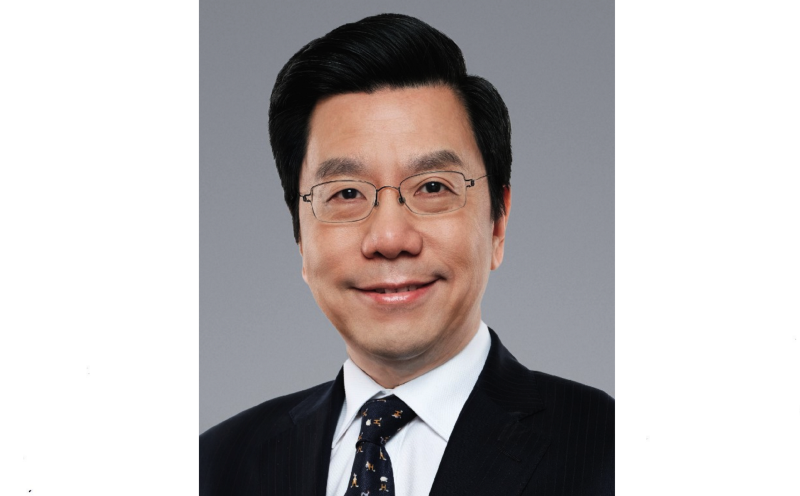Kai-Fu Lee is the dean of China’s new AI Research Center and CEO and Founder of Sinovations Ventures, a Chinese early stage ventures firm with presence in Beijing, Shanghai, Shenzhen and Silicon Valley. He previously held senior executive positions at Google, Microsoft and Apple. Lee recently agreed to be interviewed by The Innovator about the future of artificial intelligence.
Q: What areas is Beijing’s New AI Research Center focusing on?
KL: The new Beijing AI Center is working on improving the quality of AI research in China. Today, China’s biggest gaps are not enough top universities can teach AI at a world-class level, and a lack of super researchers who rank in the top 100 worldwide. This results in a large number of AI positions that cannot be filled. We have a program to invite top 100 researchers to come and visit China and share their wisdom, and another program to train the professors to become better teachers, and a final program to find AI geniuses and give them special training. All of these people will stay at our center, and perform research. Most will move on to other jobs over time, thereby closing the gap of the AI talent need in China.
Q: We hear a lot about how far ahead China is on AI R & D and the fact that it has a big advantage because it has so much data. Should the West be worried?
KL: If you look purely at the surface, China and the West are strong in very different areas. China has more data and VC funding, but the West has better researchers and universities. China has strong mobile payment data, but the West has enterprise data warehouses. Both are rocket fuel to the AI engine. China has better perception AI technologies but the West has better autonomous vehicle and robotics technologies. So US and China are clearly leading the world in different areas. My new book AI Superpowers describes this competition as an enabler, not as a destroyer. The technologies underneath the applications are well known and their applications mostly benign, unlike the nuclear weapon arms race. So I expect China and the West to leverage their strengths and make great progress, creating wealth and innovations benefiting all of mankind.
Q: BBVA just invested in your fund Sinvovation Ventures. Are there opportunities for other large European corporates to also invest in the fund to get a window on what is happening in China?
KL: We have a new fund that is working on US-China arbitrage: taking great American technologies to China; taking great Chinese applications to the US and other countries. We have unique access to both US and China, and both entrepreneurs and researchers. We would be delighted to receive inquiries from European corporates about investment.
Q: What, in your opinion, should every big corporate be doing to prepare for the implementation of AI?
KL: Hire an expert to assess the time frame when each part of the company can benefit from AI. Keep all your data, store everything in data warehouses, so it can be leveraged one day. When new AI tools for your industry become available, be the early adopter. While they may not be perfect, they will give you practice, and help you build a culture of AI-human symbiosis. These will the only companies that survive. Accept that there are many routine and repetitive jobs, both blue collar and white collar, that will be replaced by AI and robotics. Start workforce planning and not over-hire and provide lifelong-training to facilitate their inevitable transition. When technologies becomes good enough, adopt them, and take care of the displaced workers with new positions that you helped train them for, or with time-off for new training, or with a generous package so they can train on their own time.
Q: What is the timeline? Will some sectors — such as banking and automotive — be impacted earlier than others?
KL: The largest displacements will be in a few waves — the most routine and software-replaceable white collar jobs (clerks, customer service, telesales, consumer loan underwriters, assistants to professionals) and blue collar jobs (assembly line inspection) will be first.
The replacement of jobs with the least amount of complex thinking, will be a smaller wave in the next three to five years.
After that, as technology advances, slightly more complex white collar jobs (insurance adjusters, personal tax preparers, asset management specialists, basic translators, radiologists) will see most or all of their jobs gone, as well as blue color jobs (dish washers, brick layers, fruit pickers, assembly line workers, garment factor workers, tellers/cashiers, fast food preparer). This larger wave will be in the next five to ten years.
After that, some very complex jobs will be automated — just driving alone will account for 10% of human time, and there will be others (most factory workers, many desk jobs) that will cause massive job replacement — about 40%-50% in fifteeen years or so.
Autonomous stores will not have robot clerks, all the payment will be done seamlessly in zero time. Autonomous vehicles will not be an automobile function, but a fleet of Uber-like vehicles that come to you intelligently with almost no waiting. Future loans will just be tapping on an app, not going to the bank. So some of the displacements will not be one person at a time, but one industry at a time.
Within a given domain, AI can take a lot of data and learn to make more precise decisions and movements and predictions than humans. So the primary jobs immune to AI are those requiring creativity, multi-domain strategy, dexterity, and most widely, the “human touch” (compassion, empathy, love).







